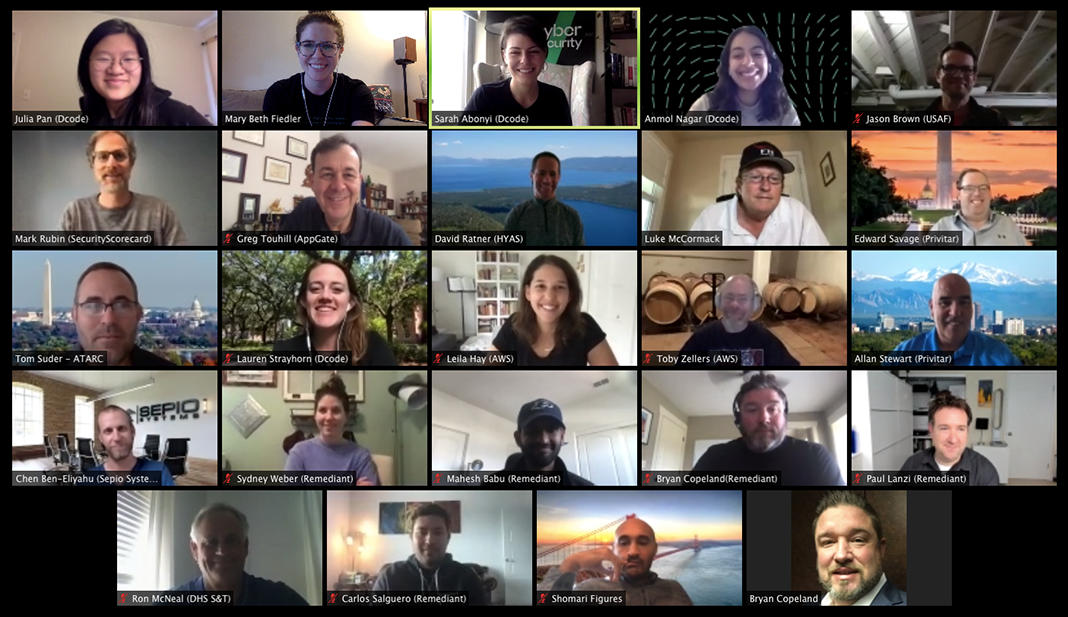The spring saw a flurry of news stories about accelerators running virtual programs in order to continue driving results for emerging tech companies, especially as these companies faced unprecedented challenges posed by COVID-19.
While the pandemic undoubtedly produced obstacles for startups, it also created opportunities, particularly for commercial tech aiming to enter and scale in the federal market. During economic uncertainty, the federal market can provide a respite with long, recession-resilient contracts and stable revenue. Additionally, more than ever, the government is pressed for tech solutions that can help agencies rapidly respond to the crisis and the massive shift to teleworking.
However, while the federal government spends tens of billions on tech solutions each year, the lengthy and expensive bureaucratic process associated with selling to the government causes many emerging tech companies — which often have limited resources and experience — to avoid working with the government altogether.
In response to the combination of both necessity and opportunity, Dcode’s acceleration program, like other accelerators, transitioned to entirely virtual as our AI and big data cohort approached graduation and our cybersecurity cohort kicked off.
Like other accelerators, we saw several benefits from hosting the program virtually — the most obvious of these being increased participation. Without being location-bound, key government and industry leaders were able to participate when they otherwise would not have been able to attend, had the program taken place live in person. Because of this spike in engagement, our companies are already closing deals after graduating just weeks ago this spring and summer.
AI company Trueface recently won a Phase II Small Business Innovation Research contract with the Air Force. Cyber threat detection company HYAS is well-poised for success with the Department of Defense, and several other companies are moving toward federal contracts with government connections they made through our accelerator.
Despite the shift to virtual, the foundation of our program remained the same: federal market education, strategy development and government networking. The knowledge, resources and connections companies gain from Dcode’s acceleration program demystifies the federal procurement process, positioning them for success when applying their commercial solutions to solve the most critical government challenges. To preserve the value of our largely in-person program, identifying and implementing the right tools and processes for an entirely virtual environment was critical.
For example, establishing trust is an essential component of forming fruitful business relationships, and it can be challenging (not to mention draining) to build trust through a screen. To ensure companies were still able to maximize their one-on-one virtual meetings with key government and industry leaders while maintaining authenticity and informality, we created guidance for video calls and provided tips for bridging gaps posed by the virtual world. Some companies inevitably took advantage of the virtual environment to get creative with their demos, pitch decks, and other marketing materials that we help them develop throughout the program.
Building community and maintaining a high-touch program was another challenge that we ultimately mitigated by instituting additional virtual coffee chats, office hours, one-on-one strategy sessions and, most importantly, swag boxes.
Lastly, to accommodate varying at-home obligations and the stress associated with working at home during a pandemic, we transitioned our curriculum to an online e-learning platform complete with recorded video sessions and a collaborative workspace to develop marketing materials and strategy documents.
The quick shift to virtual both helped keep our community safe and drove rapid results. In fact, some of the successful outcomes have led to important product developments, improving the program long-term. Working with tech companies to drive real results, especially results that help the government respond to new and evolving challenges during a pandemic, is certainly something to be hopeful about.







